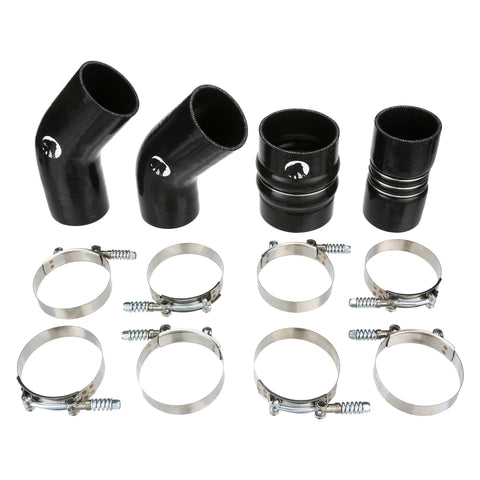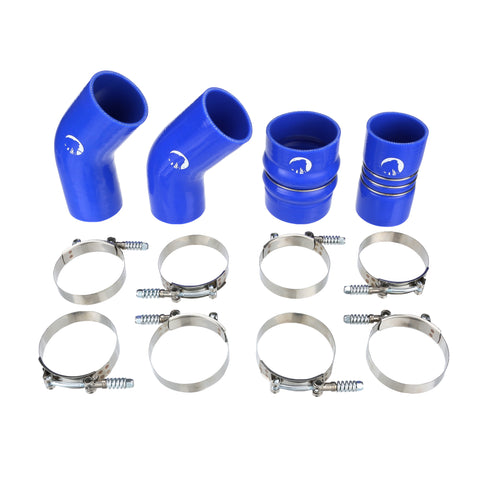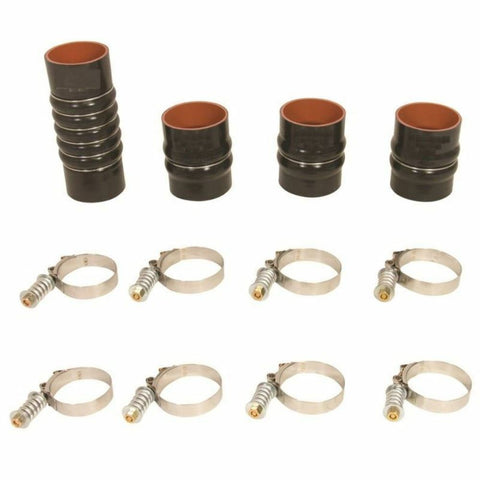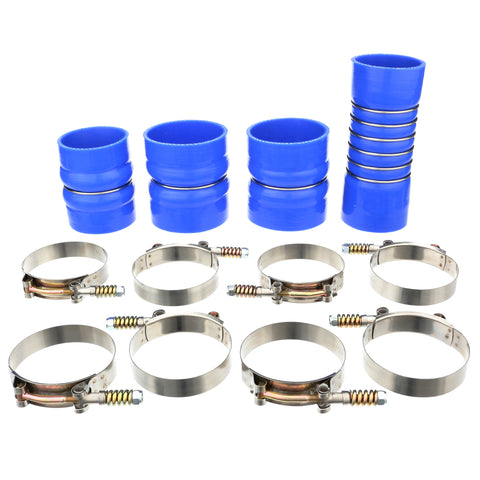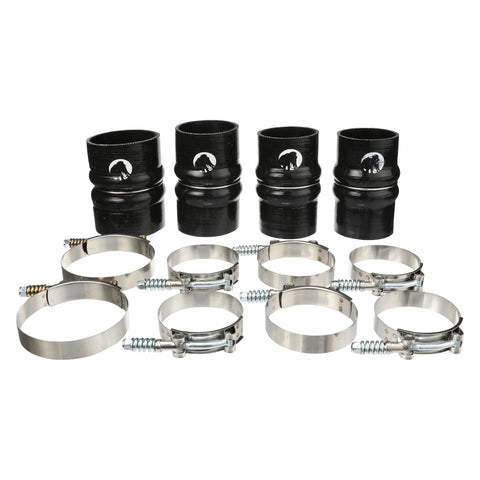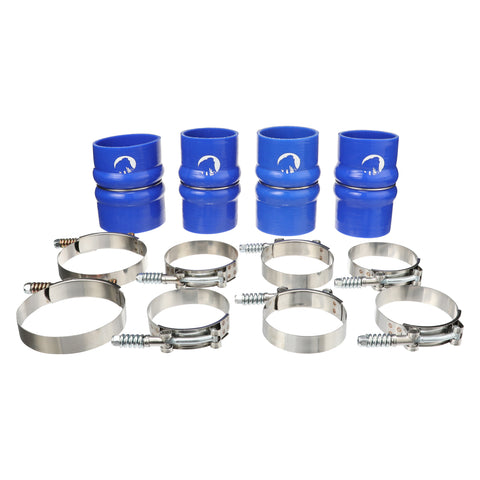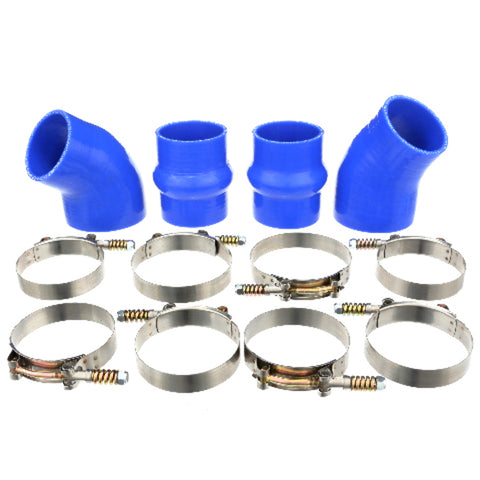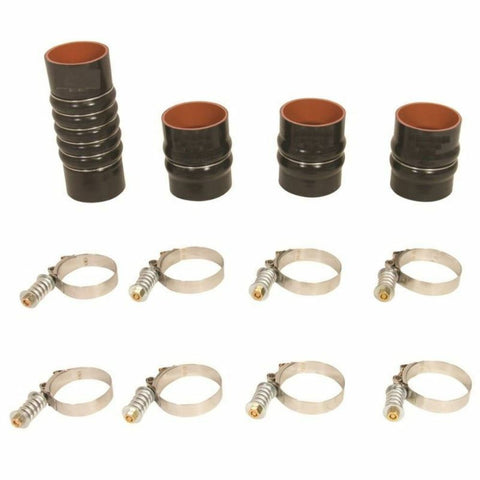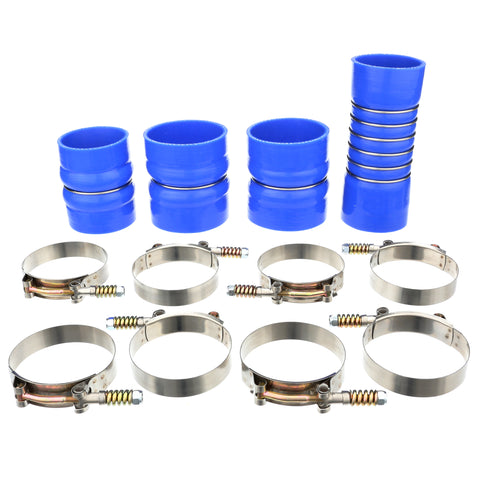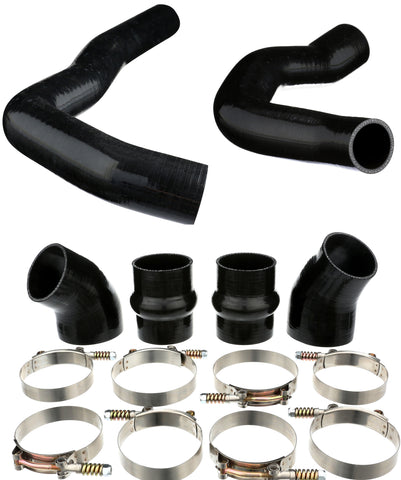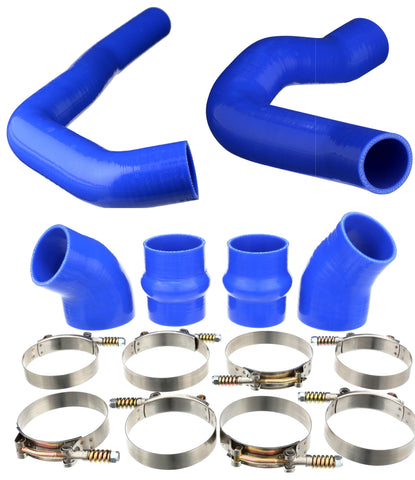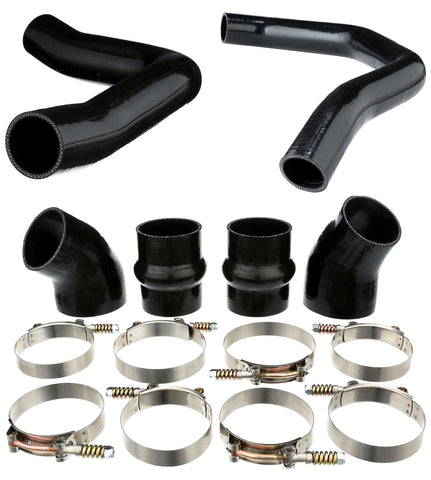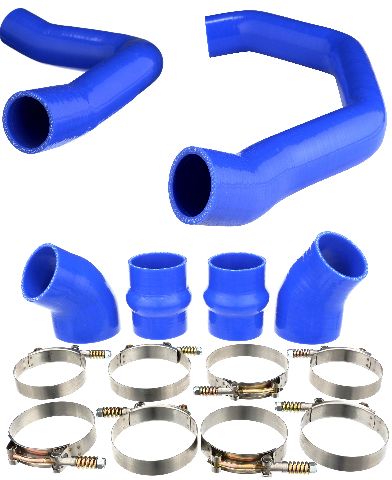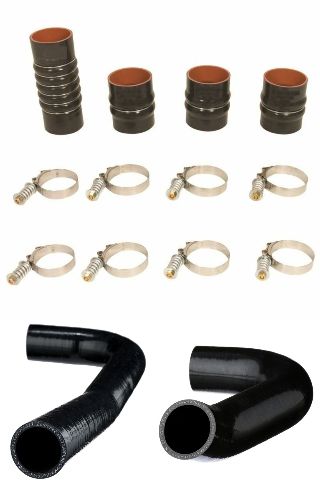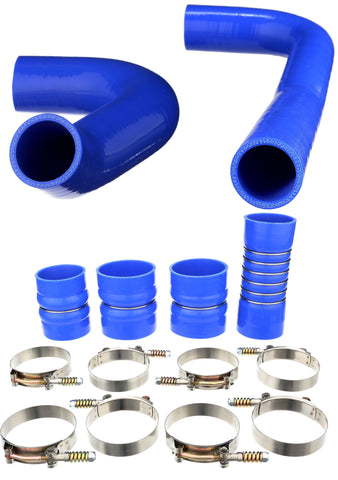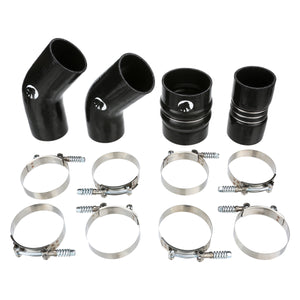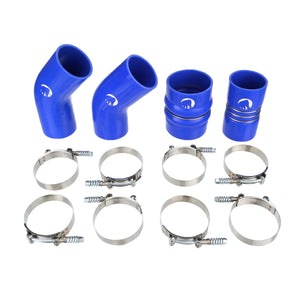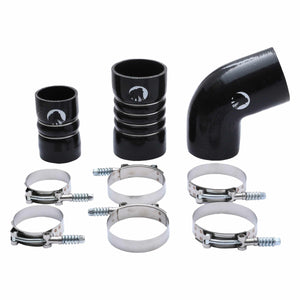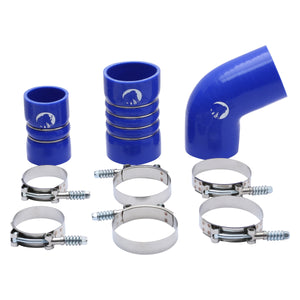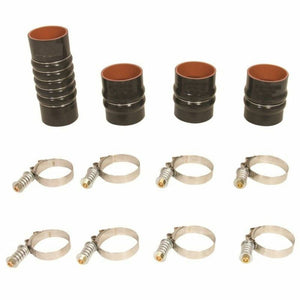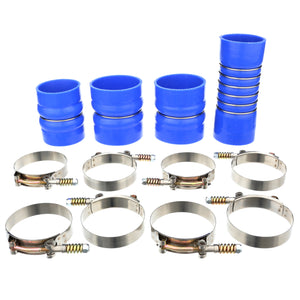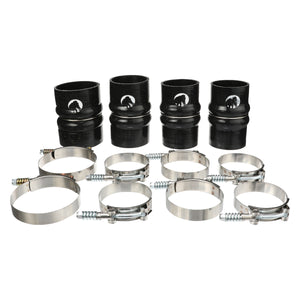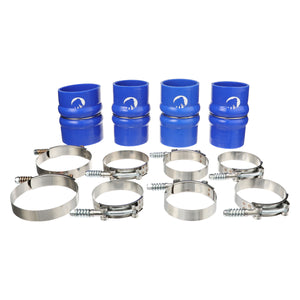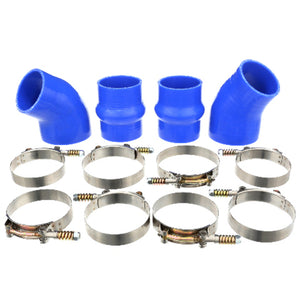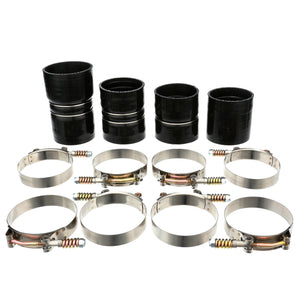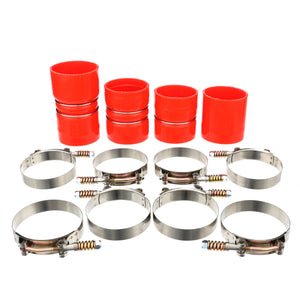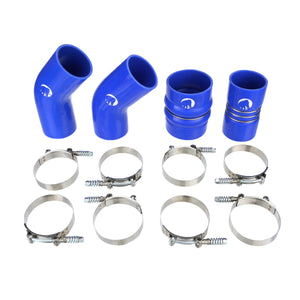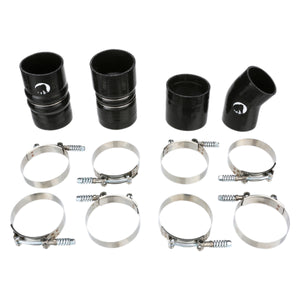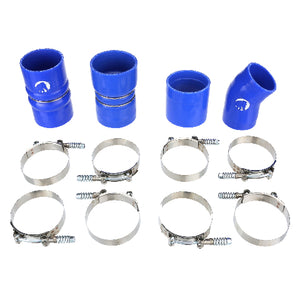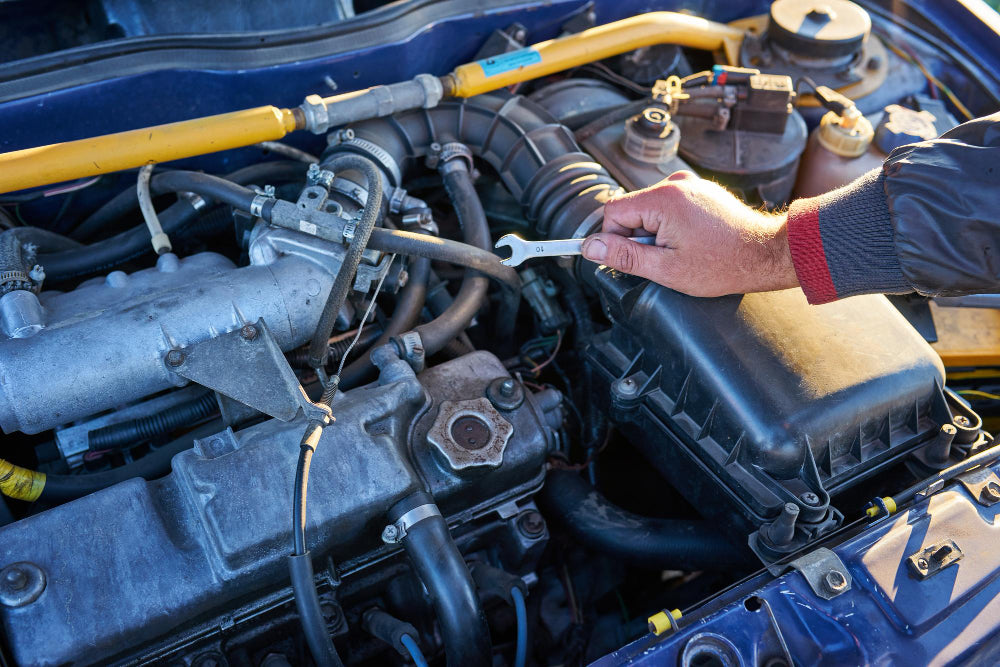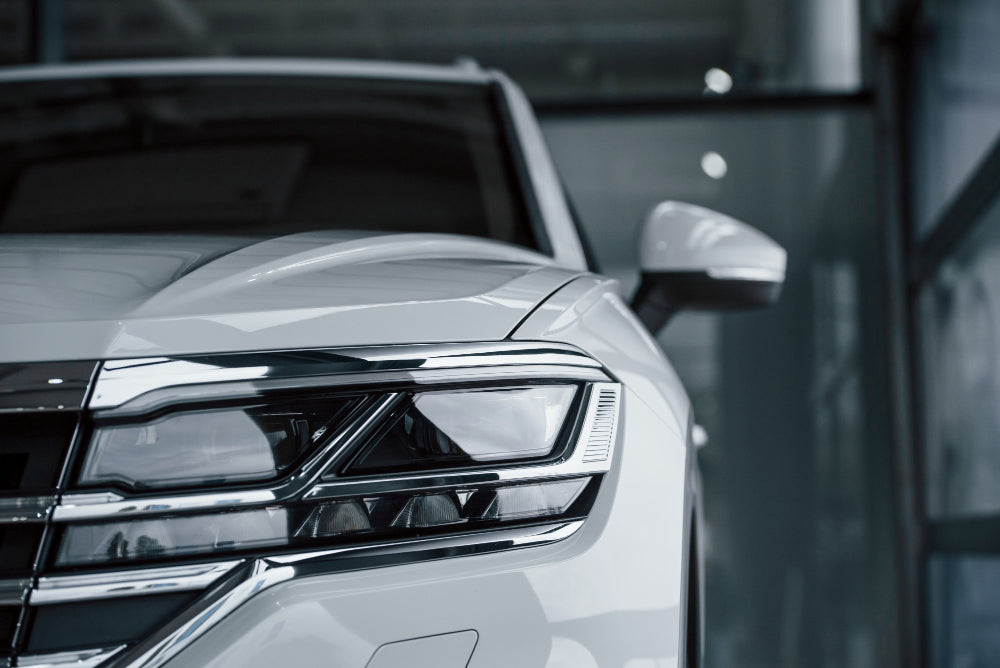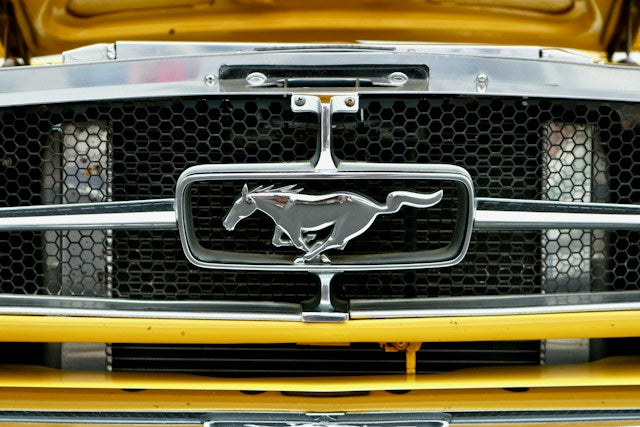Do Intercoolers Add Horsepower
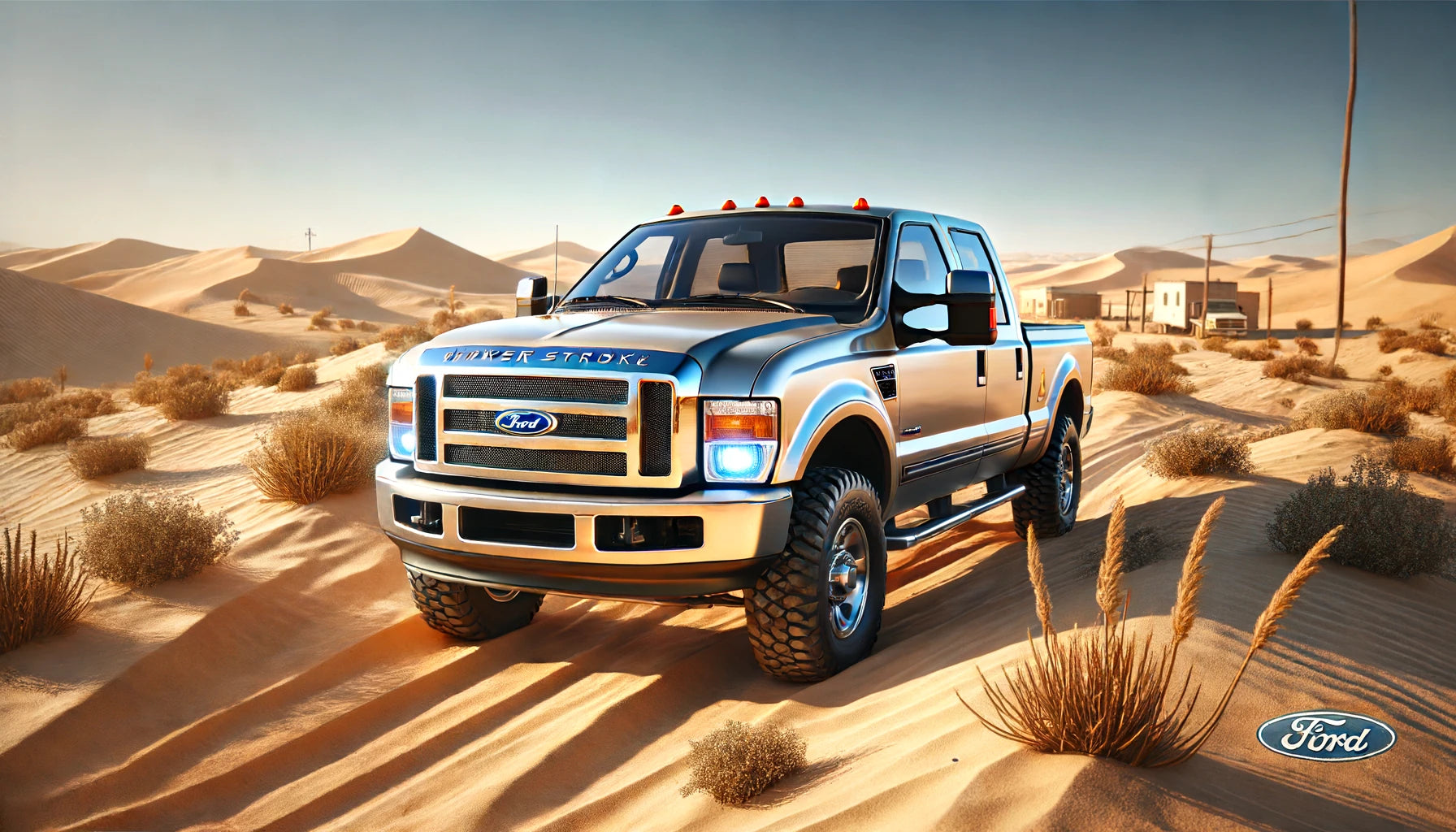
Table Of Contents
Intercoolers are among the most popular performance mods among tuner car builders, so it begs the question: "Do intercoolers add HP?" An intercooler is an integral part of a forced induction engine, i.e., an engine that uses turbochargers or superchargers to increase its efficiency and performance. Not all turbocharged or supercharged vehicle engines come with intercoolers, but most of them do. Depending on the application, turbochargers can heat up rapidly to even 1000° C when under heavy load. The compressed air that such a turbocharger emits must be cooled before entering the combustion chambers to regulate engine temperature and improve performance. That's where an intercooler comes in.
In addition to being used in modified, performance, and racing vehicles, intercoolers are found in many modern sedans, hatchbacks, SUVs, crossovers, vans, and trucks. So, given its purpose, is it true that an intercooler enhances performance, and how much hp does an intercooler add?
This article endeavors to shed light on how an intercooler impacts an engine's horsepower figures.
1. Types of Intercoolers: Which Is the Best?
Essentially, there are two intercooler types: air-to-water and air-to-air intercoolers. Each intercooler design has its advantages. Keep on reading to learn about their differences.
1. An Air-to-Water Intercooler
An air-to-water intercooler is liquid-cooled. The intercooler uses water to transfer heat from compressed air before entering the combustion chamber. The water circulates to cool the air, and as it heats up, it is filtered out through cooling circuits, which cool it off.
An air-to-water intercooler is smaller than an air-to-air intercooler. As such, it makes an excellent option for engine bays without much additional space. Moreover, this intercooler is ideal for higher temperatures because water has much higher thermal capacity and conductivity than air, so it absorbs heat better. That said, air-to-water intercoolers are initially reserved for high-horsepower performance vehicles.
2. An Air-to-Air Intercooler
Air-to-air intercoolers are commonly used with lower horsepower turbocharged engines. The air-to-air intercooler has first dibs on the air stream and employs a piping system to channel the compressed air through it. It has cooling fins that absorb heat as the compressed air flows from the turbocharger. Air-to-air intercoolers are common because they are affordable, simple, and lightweight.
The most common types of air-to-air intercoolers are tube-and-fin and bar-and-plate intercoolers. Tube-and-fin intercoolers employ a network of tubes with cooling fins to transfer heat as air passes through the system. Tube and fin intercoolers have less of a pressure drop for better airflow. They are also cheaper than bar-and-plate intercoolers.
Bar-and-plate intercoolers are heavier and more robust than tube-and-fin intercoolers. These intercoolers are also more expensive but provide excellent heat transfer and cooling. Compressed air passes through plates and bars designed as a heat sink. Due to their superb cooling capability, bar-and-plate intercoolers offer better performance.
2. What Does an Intercooler Do?
An intercooler's primary function is to cool the compressed air from a turbocharger or supercharger before it enters an engine's combustion chamber. Turbochargers compress and force air into the engine, allowing more oxygen to mix with fuel in the engine. When air is compressed, it heats up. Also, as mentioned above, turbochargers and superchargers get very hot because exhaust gases run through them.
In cooling the heated, compressed air, an intercooler also prevents the detonation or engine knocking that can occur due to high operating temperatures. The cooling fluid or air moves around the system to absorb the heat from the compressed air. The cooling mechanism is similar to car radiators, where coolant circulates through tubes equipped with fins to transfer heat to the surroundings.
3. Do Intercoolers Increase Horsepower?
Yes, they do, but indirectly. By cooling the hot air that flows out of your car's turbocharger, your intercooler increases the density of that air. The denser air is, the more oxygen molecules it contains. The increase in oxygen facilitated by the intercooler produces more horsepower because the additional oxygen causes more fuel to be combusted. Depending on the application, properly installed intercoolers have been reported to add 5-15 horsepower.
4. What Factors Influence HP Gain?
Several factors can influence the horsepower gain in your car engine. Below, we expound more:
Intercooler Size and Design
Bigger intercoolers increase the engine power because they reduce the intake air temperature. Low-temperature air has higher oxygen, therefore increasing the combustion and power. More power means the car engine will accelerate and drive faster. Conversely, the air-to-water intercoolers influence more horsepower because water has higher thermal capacity and conductivity.
Ambient Temperature Conditions
Ambient temperature affects the engine efficiency and fuel consumption. Cold air is denser than warm air, so an engine can take in more oxygen for combustion, improving power output. In summary, a car engine will perform better in cold weather because cool air has more oxygen for combustion.
Engine Tuning and Fueling
A tune typically consists of adjusting the car's Electronic Control Unit (ECU) for the engine to operate at optimum potential. It involves optimizing the engine's performance parameters, like fuel delivery and ignition timing, to produce more power. High-octane fuels, like ethanol, also help the engines deliver more horsepower and speed.
Vehicle Application and Driving Conditions
Automobiles have evolved as manufacturers constantly find ways to improve vehicle handling, efficiency, safety, and performance. These developments have been made possible with electronics and electronic signal testing. Increased use of microprocessors and sensor technology has led to advancements in traction control, power delivery, and efficiency. Driving conditions like sport modes also increase the engine power to deliver more horsepower.
5. How Mammoth Performance Parts Can Help Increase Engine Power
With your intercooler upgrade, you are also going to need a high-quality intercooler boot kit like the ones we offer, especially if you are running higher-than-stock boost pressures. An intercooler boot kit comprises clamps and purposefully designed silicone hoses that seal all connections between various intercooler components. Rest assured that you won't have to deal with boost leaks when using our intercooler boot kits. Mammoth Performance Parts also offers custom-made silicone radiator hoses designed to OEM specifications so they always fit perfectly. If you want more information about these products, follow this link to contact us.


